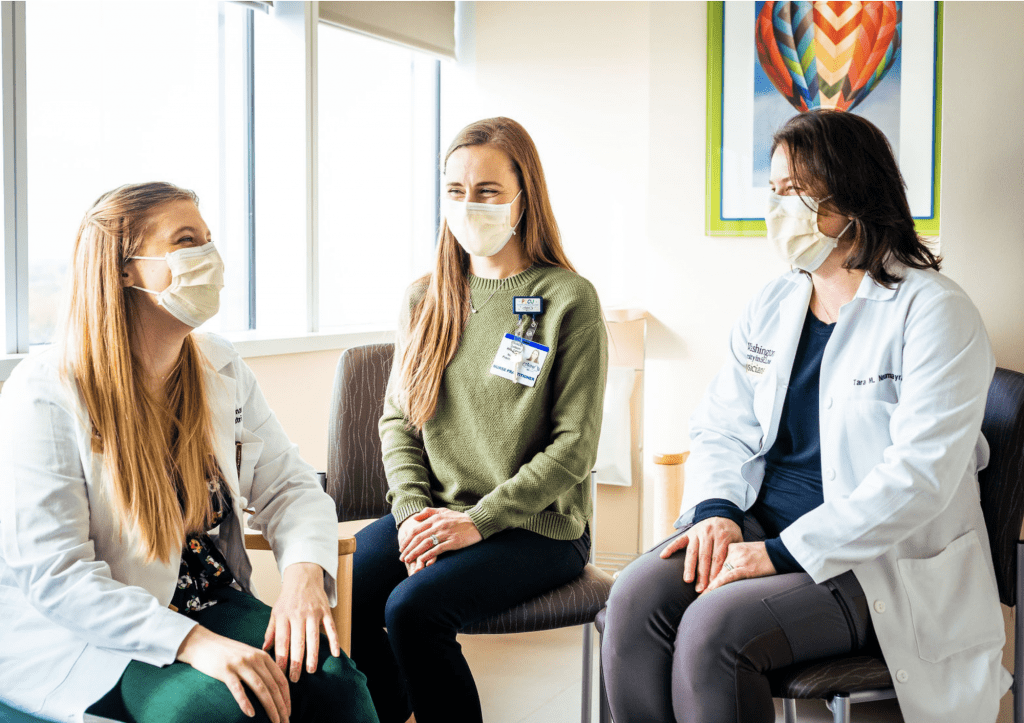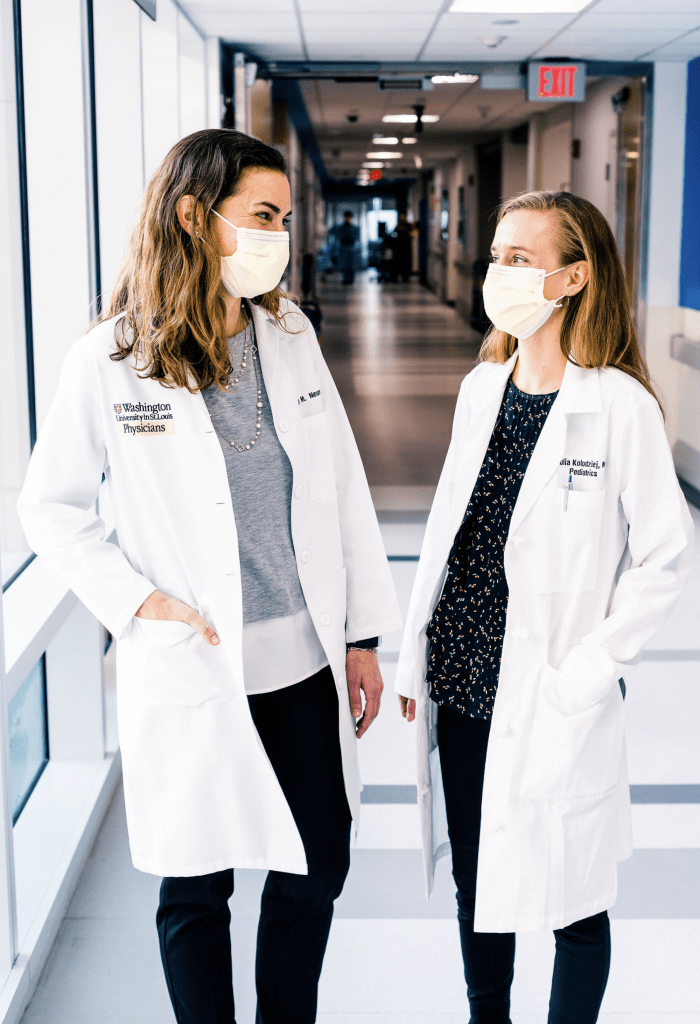The Pediatric Critical Care Fellowship at Washington University School of Medicine is designed to ensure that fellows gain the necessary knowledge and practical skills to care for critically ill children. Fellows initially focus on basic assessment and therapy for organ system dysfunction, leading to a progressive understanding of disease processes and management. Ultimately, fellows develop independent decision-making, team leadership, and bedside teaching proficiency, preparing them for the transition to faculty after graduation.
The first year emphasizes clinical experience, while research and academic development become a larger focus in the second and third years of clinical training, as shown here:
| Year 1 | Year 2 | Year 3 | |
|---|---|---|---|
| Pediatric ICU | 6 months | 4.5 – 5 months | 3.5 months* |
| Cardiac ICU | 2 months | 1 – 1.5 months | 0.5 – 1 month |
| Anesthesia | 2 weeks | 1 week | 1 week |
| Research | 2.5 months | 5 months | 6.5 months |
| Vacation | 4 weeks | 4 weeks | 4 weeks |
Our fellowship schedule has the flexibility to accommodate fellows’ preferences and interests, and fellows can take advantage of a variety of electives (including Palliative Care, Neurocritical Care, etc.) during their non-clinical or research time. During their Anesthesia time, senior fellows learn about acute pain therapies, management of difficult airways, and delivery of anesthesia in complex and high-risk pediatric patients. To optimize use of fellows’ non-clinical/research time, our fellows currently work night shifts as part of a night float system rather than 24-hour calls.
Combined fellowships
For fellows who want to pursue in-depth training in other subspecialties along with Pediatric Critical Care, we have experience in adapting our curriculum to meet the needs of combined or sequential dual-training fellowships. Previous trainees have pursued combined or sequential subspecialty training in neurology, cardiology, pulmonology, nephrology, and infectious diseases. Applicants for dual-training fellowships are considered through the regular ERAS/NRMP process.


